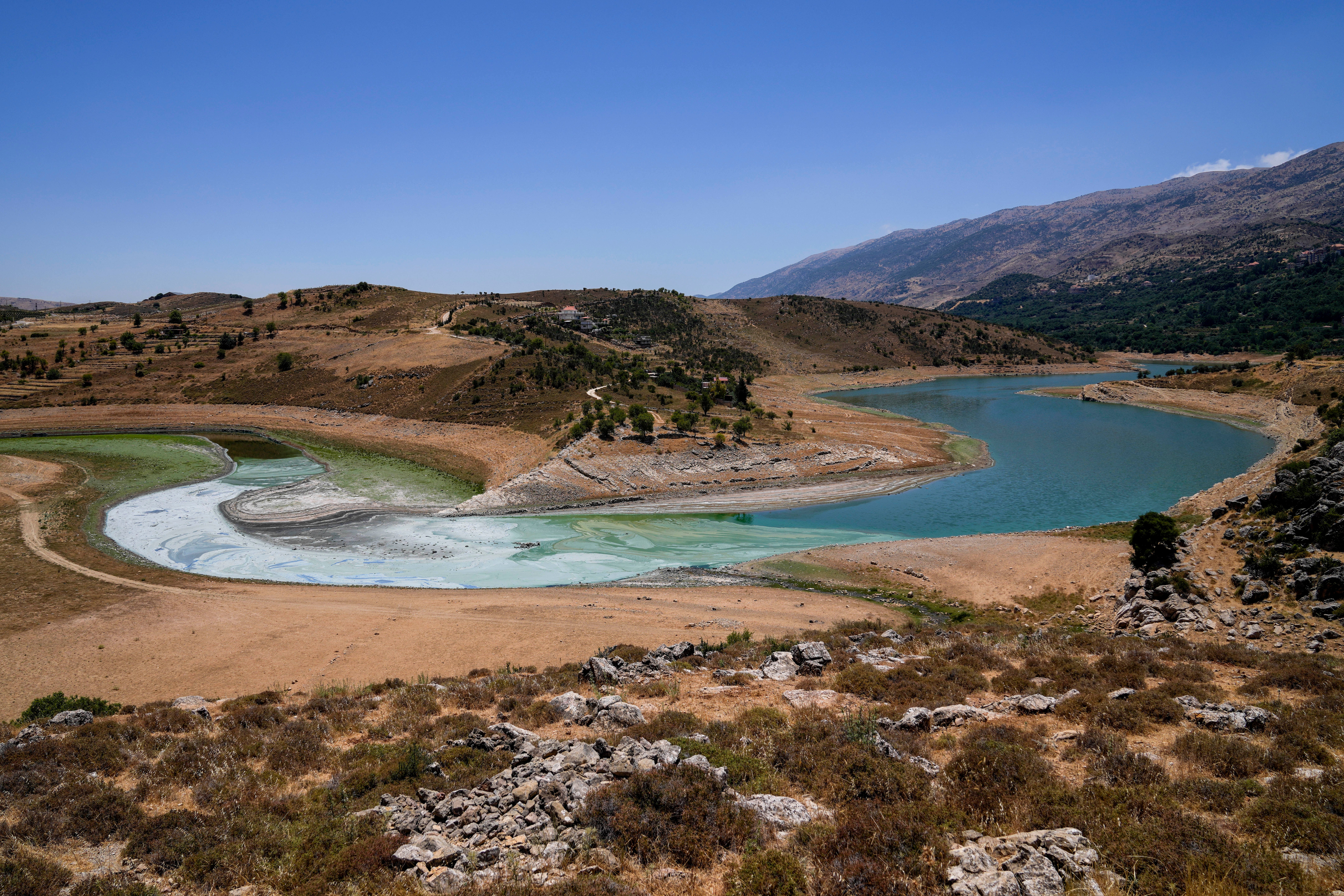Aid groups: Millions in Syria, Iraq losing access to water
International aid groups are warning that millions of people in Syria and Iraq are losing access to water, electricity and food

Your support helps us to tell the story
From reproductive rights to climate change to Big Tech, The Independent is on the ground when the story is developing. Whether it's investigating the financials of Elon Musk's pro-Trump PAC or producing our latest documentary, 'The A Word', which shines a light on the American women fighting for reproductive rights, we know how important it is to parse out the facts from the messaging.
At such a critical moment in US history, we need reporters on the ground. Your donation allows us to keep sending journalists to speak to both sides of the story.
The Independent is trusted by Americans across the entire political spectrum. And unlike many other quality news outlets, we choose not to lock Americans out of our reporting and analysis with paywalls. We believe quality journalism should be available to everyone, paid for by those who can afford it.
Your support makes all the difference.Millions of people in Syria and Iraq are at risk of losing access to water, electricity and food amid rising temperatures, record low water levels due to lack of rainfall and drought, international aid groups warned Monday.
The two neighboring countries, both battered by years of conflict and mismanagement, are in need of rapid action to combat severe water shortages, the groups said. The drought is also disrupting electricity supplies as low water levels impact dams, which in turn impact essential infrastructure, including health facilities.
More than 12 million people in both countries are affected, including 5 million in Syria who are directly dependent on the Euphrates River. In Iraq, the loss of access to water from the Euphrates and Tigris River, and drought, threaten at least 7 million people.
Some 400 square kilometers (154 square miles) of agricultural land faces drought, the groups said, adding that two dams in northern Syria, supplying power to 3 million people, face imminent closure.
Carsten Hansen, regional director for the Norwegian Refugee Council one of the aid groups behind the warning, said that for hundreds of thousands of Iraqis still displaced and many more still fleeing for their lives in Syria, the unfolding water crisis “will soon become an unprecedented catastrophe pushing more into displacement.”
Other aid groups included Mercy Corps the Danish Refugee Council, CARE international, ACTED and Action Against Hunger.
They warned that several Syrian provinces — including Hassakah, Aleppo and Raqqa in the north and Deir el-Zour in the east — have witnessed a rise in water-borne diseases. The areas include displacement settlements housing tens of thousands of people displaced in Syria’s 10-year conflict.
CARE’s regional chief for Mideast and North Africa, Nirvana Shawky, urged authorities and donor governments to act swiftly to save lives. The latest crisis comes on top of war, COVID-19 and severe economic decline, she said.
“There is no time to waste,” said Gerry Garvey of the Danish Refugee Council, adding that the water crisis is likely to increase conflict in an already destabilized region.
Severe water shortages have also hit Lebanon which is mired in the worst economic and financial crisis in its modern history, where more than 4 million people — mainly vulnerable children and families — face critical water shortages in the coming days, the U.N.'s children agency warned last week.
In Lebanon, severe fuel shortages have also halted the work of thousands of private generators long relied on for electricity in the corruption-plagued country.
UNICEF called for urgent restoration of the power supply to keep water services running.
Lebanon's rivers are also heavily polluted. Activists have long warned about pollution levels caused by sewage and waste in the Litani River, the country's longest and a major source for water supply, irrigation and hydroelectricity.